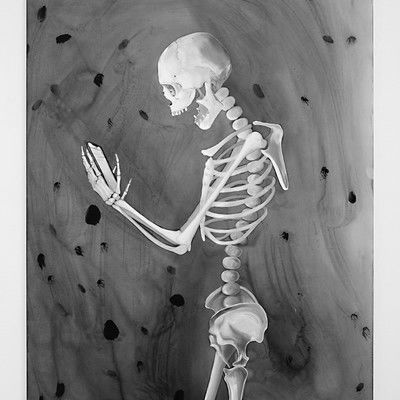The Zombie Campaign
Inside the campaign of Joe Biden, “the least formidable front-runner ever.”
Showing 25 articles matching physics of music.
Inside the campaign of Joe Biden, “the least formidable front-runner ever.”
Olivia Nuzzi New York Oct 2019 35min Permalink
A restless history of Washington Heights.
Carina del Valle Schorske Virginia Quarterly Review Dec 2019 25min Permalink
At the world’s largest gathering of psychics and mediums, two brothers confront a painful secret.
Barrett Swanson The Atavist Magazine Dec 2019 40min Permalink
The inside story of a brutally botched undercover operation.
Michael Lista Toronto Life Jan 2020 25min Permalink
A profile of Brooks Koepka.
Daniel Riley GQ Feb 2020 25min Permalink

The life and work of a Manhattan psychoanalyst.
Janet Malcolm New Yorker Nov 1980 1h10min Permalink
The cost of parents sharing their lives on Instagram.
Molly Langmuir Elle May 2020 20min Permalink
The fall of CBS showrunner Peter Lenkov.
Maureen Ryan Vanity Fair Jul 2020 25min Permalink
YouTubers Myka and James Stauffer shared every step of their parenting journey. Except the last.
Caitlin Moscatello The Cut Aug 2020 30min Permalink
In Minneapolis, a group of activists take over a Sheraton and open it to the homeless, banning police.
Wes Enzinna Harper's Sep 2020 Permalink

A psychoanalytic reading of social media and the death drive.
On the downfall of ubiquitous accident law firm, Cellino & Barnes.
Jeremy Kutner New York Sep 2020 30min Permalink
The ethical burdens of the ICU during Covid.
Jordan Kisner The Atlantic Dec 2020 30min Permalink
The very real, totally bizarre bucatini shortage of 2020.
Rachel Handler Grub Street Dec 2020 20min Permalink
The jewels of America’s landscape should belong to America’s original peoples.
David Treuer The Atlantic Apr 2021 30min Permalink
Roberto Ferdman is a correspondent at VICE News. He and his colleagues at VICE News Tonight won the George Polk Award for Television Reporting for their coverage of the killing of Breonna Taylor and the investigations that followed.
This is part four in a week-long series of conversations with winners of this year's George Polk Awards in Journalism.
Apr 2021 Permalink

On the retirement of Ted Williams.
John Updike New Yorker Oct 1960 25min Permalink
A profile of the gymnast.
Dvora Meyers Vice Aug 2020 30min Permalink
American history begs the question: Can immigrants possibly inherit the mythology of the U.S.?
Kirtan Nautiyal Guernica Oct 2021 20min Permalink
James Wood on Saul Bellow:
One realizes, with a shock, that Bellow has taught one how to see and how to hear, has opened the senses. Until this moment one had not really thought of the looseness of a lightbulb filament, one had not heard the saliva bubbling in the harmonica, one had not seen well enough the nose pitted with black pores, and the demolition ball’s slow, heavy selection of its victims. A dozen good writers–Updike, DeLillo, others–can render you the window of a fish shop, and do it very well; but it is Bellow’s genius to see the lobsters “crowded to the glass” and their “feelers bent” by that glass–to see the riot of life in the dead peace of things.
James Wood The New Republic Jan 2000 30min Permalink
Lynsey Addario is a photojournalist for The New York Times and National Geographic. She won the George Polk award for her photograph of the bodies of a woman and her two children alongside a friend who lay dying moments after a mortar struck them as they sought to flee Ukraine.
“If I have time to compose a photo—even if it's of a horrific topic—I will always try to make the most beautiful photograph because I want people to look. I want people to ask questions, to be engaged, to pay attention. And often, that does mean the intersection of beauty and horror.”
This is the fourth in a week-long series of conversations with winners of this year's George Polk Awards in Journalism.
Apr 2023 Permalink
How a brilliant self-made software programmer from South Africa single-handedly built an online startup that became one of the largest individual contributors to America’s burgeoning painkiller epidemic. In his world, everything was for sale. Pure methamphetamine manufactured in North Korea. Yachts built to outrun coast guards. Police protection and judges’ favor. Crates of military-grade weapons. Private jets full of gold. Missile-guidance systems. Unbreakable encryption. African militias. Explosives. Kidnapping. Torture. Murder. It's a world that lurks just outside of our everyday perception, in the dark corners of the internet we never visit, the quiet ports where ships slip in by night, the back room of the clinic down the street.
Evan Ratliff Wired Jan 2019 25min Permalink
Terrence McCoy is The Washington Post's Rio de Janeiro Bureau Chief. He won the George Polk award for his series "The Amazon, Undone" on the illegal and often violent exploitation of the rainforest.
“When I first got to Brazil, the Amazon was an arena of mystique. But after you spend a fair amount of time in the Amazon, it becomes quite clear what the struggle is—and how human that struggle is.”
This is the last of a week-long series of conversations with winners of this year's George Polk Awards in Journalism.
Apr 2023 Permalink
The son of a Red Sox legend, his trail of violent attacks runs back to his teen years. So does the line of judges who somehow saw fit, time and again, to give him one more chance. Now he’s on trial for murder.
Eric Moskowitz Boston Globe Mar 2014 30min Permalink
With Osama dead, U.S. intelligence is zeroing in on the remaining most dangerous terrorists alive, and one man is at the top of the list. Of the eighteen terror attacks attempted in the United States over the past two years, Anwar al-Awlaki’s fingerprints are on eight of them. The moderate turned radical is eloquent, he is popular— and he’s American.
Patrick Symmes GQ Jul 2011 15min Permalink